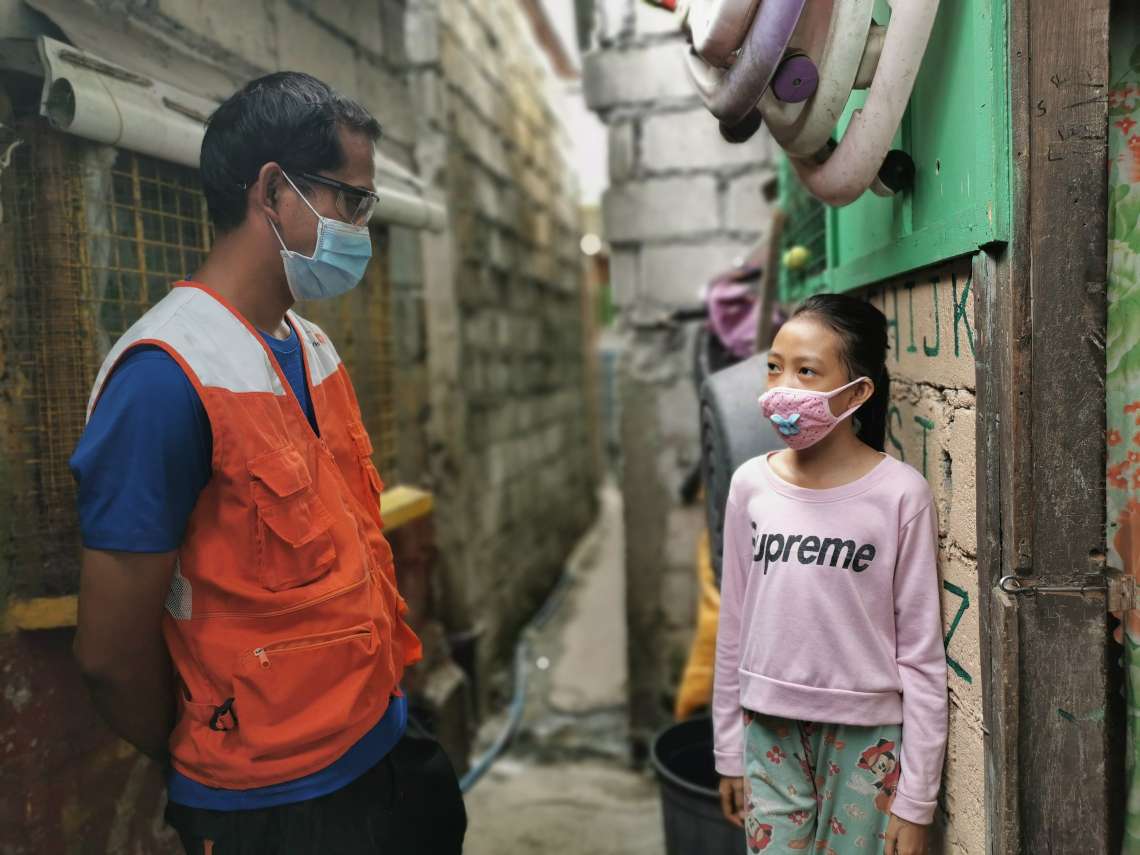One Year On: World Vision Philippines COVID-19 Response
16 March, 2021 – COVID-19 could reverse 20 years of progress in reducing hunger and improving the health of millions of children across the globe, according to child-focused development and aid agency World Vision.
“We must not allow the pandemic to continue to rob children of their God-given potential as education is put on hold, health systems are overwhelmed, vaccinations paused, and children left hungry as livelihoods are decimated,” said Andrew Morley, President and CEO of World Vision International.
In the Philippines, after a year of enforced community quarantine to prevent further spread of Covid-19 nationwide, more vulnerable families bear the staggering loss of livelihoods to make ends meet and source the basic of family needs like food.
From the COVID-19 rapid assessment conducted by World Vision in June last year, it revealed that 37 percent of household respondents reduced the size of their meals, while 15 percent cut down the number of meals per day.

“We are seeing more and more children who are underweight or rapidly losing weight simply because their parents have lost their jobs and can no longer afford to put healthy food on the table,” shared Carleneth San Valentin, health and nutrition manager for World Vision in the Philippines. “This pandemic worsens the status of nutrition in the country. This puts children’s immediate health in danger, while we also see the potential impact of chronic malnutrition such as stunted, physical growth and delayed cognitive development.”
In the earlier parts of the pandemic, World Vision launched a massive health emergency response to help limit the spread of the virus, strengthen the capacity of health workers, and advocate for the children’s well-being and protection.
“No matter how devastating the past year seemed to be because of the pandemic, we believe that God has still provided us reasons to be grateful for.
World Vision’s COVID-19 Emergency Response, with the help and prayers of generous partners and donors, has reached and assisted more than five million individuals including 1.2 million children,” shared World Vision national director Rommel V. Fuerte.
With the promise of medically-tested and approved vaccines to accelerate the fight against COVID-19, World Vision looks forward to see more lives spared from the dreaded disease.
It calls on national leaders and decision-makers to ensure that vaccines are provided on a fair and equitable basis, distributed according to population size, and are given first to those who are most vulnerable including the elderly, people with health conditions that put them at higher risk and the frontline health workers among others.
“The development and equitable access to safe vaccines is key to protect the most vulnerable and restoring hope and livelihood of our people,” Fuerte declared.
While children are not yet included extensively in the initial vaccine roll-outs, the benefits to children will become a reality as their parents, caregivers and other people in their communities receive vaccines.
“Vaccines will be a big leap and game changer for children as the prospect of normalcy like going back to school and families to recover their livelihoods is hoped to be realized,” Fuerte hinted with much optimism.
However, the steady supply of vaccines and its total roll-out remain to be seen in the country.
“Based on our experience, we believe that listening to communities, building trust, and ensuring transparency are also keys to a successful introduction and roll-out of the COVID-19 vaccine,” Fuerte explained.
“Some of the main barriers to vaccination programmes are hesitancy and low level of community engagement, which is why we are keen to support communities to not only gain access to the vaccines, but also help communities to fully understand its benefits and limitations, providing them with accurate, fact-based information so they can make informed decisions about their health,” Fuerte pointed out.
World Vision couldn’t emphasize more the critical leadership role of the Department of Health (DOH) and the Inter-Agency Task Force (IATF) which also include the local government units (LGUs) leaders nationwide. “We are partners with DOH and the IATF in constantly educating, and better informing the people with facts through various channels especially online and at the community level,” Fuerte said.
World Vision also recognises the important role of the church and faith leaders who are highly trusted by their community members and followers, to take part in vaccination campaigns and roll-outs. Faith leaders are important influencers, promoting attitude and behaviour change and ensuring communities receive assistance in times of crisis. When supported and guided well, the capacity of the church and faith leaders to be agents of good health and channels of hope, is unleashed,” Fuerte suggested.
More challenges
Meanwhile, an emerging threat of new Covid-19 variants triggers a surge of cases in the country, batting a daily average of at least 4000 in Metro Manila alone. Local health experts predict this could double and overwhelm health institutions, if no drastic or coordinated measures are taken to curb the alarming trend.
There has also been reports that the new variants have become more contagious, easily infecting even children.
This prompts the national and local government to enforce stricter lockdown measures, curfews, and unified travel guidance to reduce mobility, transmission and contact with infected populations.
“After a year of enduring the ongoing lockdown, some people could possibly get complacent and get their guards down. It is highly important that people continue to adhere to prevention measures designed to contain the spread of COVID-19, including wearing masks and face shields, handwashing, and physical distancing even with prospect of the vaccine roll-out,” Fuerte urged.
In March 15, 2021, almost a year after the imposition of the community quarantine in the Philippines, DOH recorded the highest number of cases in a day at 5,464, adding to 626,893 cases and deaths of at least 12,837 to date.








